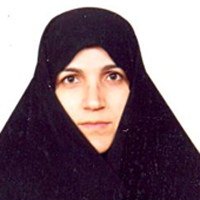Orientalist’s views on MS. 1075 Tafsir of the Cairene Dar-al- Kutub and Mujahid exegetical teachings: A critical survey
MS. 1075 Tafsir of the Cairene Dar-al-Kutub has been studied from different aspects such as: features of Isnad and Matn, its relation to different ways of transmission in the later tafsirs for example Jami' al-bayan, oral or written transmission, and the possibility of reconstruction the original tafsir of Mujahid. Stauth, Leemhuis, Wansbrough and Versteegh have dealt with all or some of these issues in different works in detail or briefly. In this article these orientalist’s views have been explained and evaluated. The results of the research show that the point of departure for all Western studies in this regard is Sezgin's theory that the authors of narrative works used written sources and also Sezgin’s method to single out the sources of a collector and to reconstruct the early lost works using quotations in later narrative works and his references to this manuscript and transmissions from Mujahid found in al-Tabari's Tafsir. This manuscript is most relateded with I'sa ibn Maymun transmission and indeed this manuscript is not one of the sources of the Jami' al-bayan and is not an extraction from Jami' al-bayan. Reconstruction of the Mujahid exegetical teachings is possible with regarding Sezgin’s theory and Schoeler’s theory.
-
Re-examining the Cohesion of "Sūrah al-Ghāshiyah" in Light of the Theory of Semitic Rhetoric (Based on the Research of Michel Cuypers)
*, Soheila Jalali Kondori, Sajedeh Nabaei
Journal of Stylistic Studies of the Holy Quran, -
Critique of Orientalists’ View on the Similarities between Quranic Stories and the Bible
Sedigheh Maleklou *,
Journal of Interreligious Studies on the Qur'an and the Bible, Spring and Summer 2024 -
The influence of cultural differences in understanding the simile of a human being to a donkey with a sore back. In letter 45 of Nahj al-Balagha
Pouran Mirzaei *, Atiyeh Salmani, Elham Zarrinkolah
Hadith Sciences, -
Analyzing the approach of Ibn-Abbas regarding the permissibility or impermissibility of interpreting the Qur'an and its semantic function in his exegetical traditions
, Ameneh Omidi *
Tahqiqat-e Ulum-e Qur´an wa Hadith,




